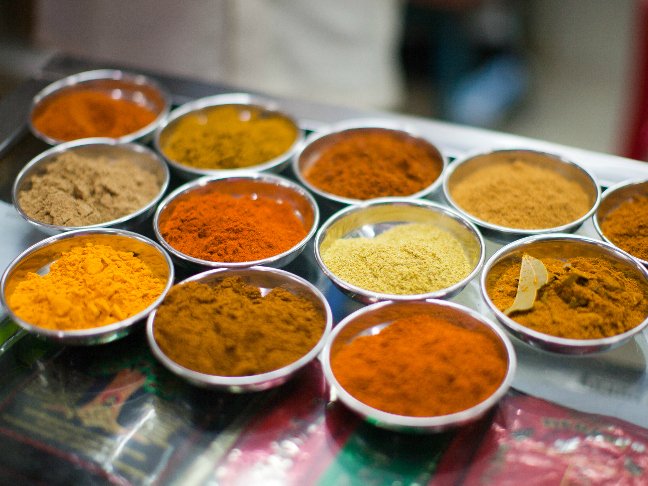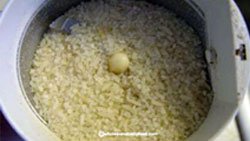Bring on the Curry, the Chili and the Chipotle
This is only the second “Tips and Topics” article that we ourselves did not write at wholesomebabyfood.com. We were reminded of this article over the holidays and thought we should share it with our visitors. The article is interesting and eye-opening. We hope it may put some minds at ease when it comes to introducing “exotic” foods or spices to infants.
J.M. Hirsch
Associated Press
Oct. 10, 2005 12:00 AM
Ditch the rice cereal and mashed peas, and make way for enchiladas, curry and even – gasp. – hot peppers.
It’s time to discard everything you think you know about feeding babies. It turns out most advice parents get about weaning infants onto solid foods, even from pediatricians, is more myth than science.
That’s right, rice cereal may not be the best first food. Peanut butter doesn’t have to wait until after the first birthday. Offering fruits before vegetables won’t breed a sweet tooth. And strong spices? Bring ’em on.
“There’s a bunch of mythology out there about this,” says Dr. David Bergman, a Stanford University pediatrics professor. “There’s not much evidence to support any particular way of doing things.”
Word of that has been slow to reach parents and the stacks of baby books they rely on to navigate this often intimidating period of their children’s lives. But that may be changing.
As research increasingly suggests a child’s first experiences with food shape later eating habits, doctors say battling obesity and improving the American diet may mean debunking the myths and broadening palates.
It’s easier, and harder, than it sounds. Easier because experts say 6-month-olds can eat many of the same things their parents do. Harder because it’s tough to find detailed guidance for nervous parents.
“Parents have lost touch with the notion that these charts are guides, not rules,” says Rachel Brandeis of the American Dietetic Association. “Babies start with a very clean palate and it’s your job to mold it.”
It’s easy to mistake that for a regimented process. Most parents are told to start rice cereal at 6 months, then slowly progress to simple vegetables, mild fruits and finally pasta and meat.
Ethnic foods and spices are mostly ignored by the guidelines and parents are warned of potential allergens such as nuts and seafood for at least a year.
Yet experts say children older than 6 months can handle most anything, with a few caveats: Be cautious if you have a family history of allergies; introduce one food at a time and watch for any problems; and make sure the food isn’t a choking hazard.
Parents elsewhere in the world often start babies on heartier, more flavorful fare, from meats in African countries to fish and radishes in Japan and artichokes in France.
The difference is cultural, not scientific, says Dr. Jatinder Bhatia, a member of the American Academy of Pediatrics’ nutrition committee who says the American approach suffers from a Western bias that fails to reflect the nation’s ethnic diversity.
How to introduce healthy children to solid food has rarely been studied. Even the federal government has given it little attention; dietary guidelines apply only to children 2 and older.
In a review of the research, Nancy Butte, a pediatrics professor at Baylor College of Medicine, found that many strongly held assumptions – such as the need to offer foods in a particular order or to delay allergenic foods – have little scientific basis.
Take rice cereal, for example. Under conventional American wisdom, it’s the best first food. But Butte says iron-rich meat, often one of the last foods American parents introduce, would be a better choice.
Dr. David Ludwig of Children’s Hospital Boston, a specialist in pediatric nutrition, says some studies suggest rice and other highly processed grain cereals actually could be among the worst foods for infants.
“These foods are in a certain sense no different from adding sugar to formula” and could contribute to later health problems, including obesity, he says.
And bring on the spices. Science is catching up with the folklore that babies in the womb and those who are breast-fed taste, and develop a taste for, whatever mom eats. So experts say that if mom enjoys loads of oregano, baby might, too!




